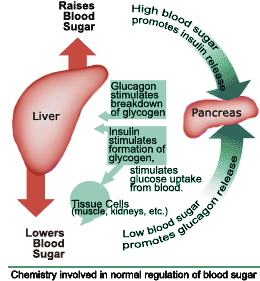What Are Symptoms of High Glucose Levels?

There are three classic symptoms of high glucose levels and several possible other symptoms. But, in order to understand the symptoms of high glucose levels it may be important to first understand why glucose levels become elevated in the first place. High glucose levels most commonly occur in those with diabetes.
This condition is caused when the body either does not produce enough insulin, or the cells are resistant to the insulin that is produced. While the body converts the sugars and carbohydrates that we ingest into glucose and glucose is the fuel for every cell in the body, without the action of insulin the glucose cannot enter the cell for use and remains in the bloodstream where levels build up.
This is why diabetics must take insulin or some form of medication that assists in the action of insulin. Even though glucose is the fuel for the body in high levels it becomes toxic and this toxicity combined with the fact that not enough glucose is entering the cells to power those causes the three trademark symptoms of high glucose levels.
Polyphagia is the first of the three symptoms of high glucose levels. Polyphagia is a fancy Greek word that means “eats a lot,” and refers to a sudden increase in appetite. This is due to the fact that the glucose is locked in the blood stream because there is a lack of insulin action to allow it to pass into the cell. Therefore your body is tricked into thinking that it is starving even though you are eating all the time and driving your blood glucose to new and dangerously high levels.
Polyuria is the second of the three classic symptoms of high glucose levels. Polyuria occurs because the body attempts to get rid of excess glucose through the urine. The glucose molecules in the bloodstream are so large that they attract water away from the body and cause excess water to be flushed out in the urine. This leads to the third of the classic symptoms of high glucose levels, which is polydipsia, or frequently thirsty. As the body loses water through the water molecules following the glucose molecules out of the body during the frequent urination the body responds by increasing thirst in the attempt to replace the lost water.
If you or someone you know has a family history of diabetes and/or begins to develop these symptoms of high glucose levels it is time for a visit to the doctor for a glucose tolerance test before the blood glucose rises to a dangerous level.



 These days’ people are more aware of their health than ever, and for an ever increasing number of people maintaining healthy blood glucose levels can be a matter of life and death. Even as death and disabilities from cancer, stroke, and heart disease decreases the number of people diagnosed with diabetes continues to grow each year. Diabetes is a metabolic disorder in which the body is either producing insufficient quantities of the hormone insulin which regulates healthy blood glucose levels or the cells of the body have developed a resistance to the action of the insulin which is produced.
These days’ people are more aware of their health than ever, and for an ever increasing number of people maintaining healthy blood glucose levels can be a matter of life and death. Even as death and disabilities from cancer, stroke, and heart disease decreases the number of people diagnosed with diabetes continues to grow each year. Diabetes is a metabolic disorder in which the body is either producing insufficient quantities of the hormone insulin which regulates healthy blood glucose levels or the cells of the body have developed a resistance to the action of the insulin which is produced.
